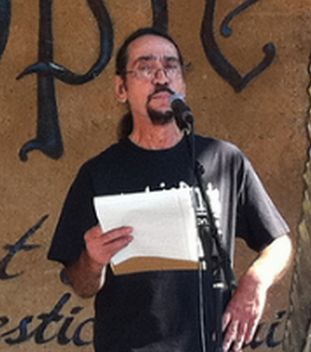Reparations obsession can be escapist, said Reed. "The frame also appeals to lawyers, economists and other people who like to play intellectual parlor games, in as much as calculation of the extent of economic and social costs of slavery and racial injustice to their victims across generations can consume endless energy, discussion and professional expertise."
As one who has become mired in at least one marathon night of calculations in search of an understanding of the enormity of The Debt/crime, I can attest that Dr. Reed has a point. But I suspect Dr. Reed finds reparations in general a diversion from what he considers to be more promising political pursuits.
"One wonders why activists should go to extraordinary lengths to conceal the overarching presence of The Debt."
The reparations narrative can also be an effective framework to engage young (and not so young) people in basic economic, social and history studies provided that the facilitators actually know something about political economy and history.
Dr. Reed critiques reparations by posing problems that could only occur if the battle for settlement of The Debt were already won:
"Indeed, the question of material compensation [for Black Americans] opens a plethora oftechnical issues. Should payments go to individuals or to some presumably representative corporate entity? If the former, who qualifies as a recipient? Would descendents of people who had been enslaved elsewhere (for instance, Brazil or the Caribbean) be eligible? And what of those no longer legally black people with slave ancestors? As a friend of mine has suggested, these issues could produce a lively trade for genealogists, DNA testers and other such quacks, and already some seem to be rising to the opportunity."
Of course, some of Reed's questions are more suitable as jumping off points for Dave Chappelle comedy skits than the real world. Nobody is proposing sorting out potential recipients of some Big Payout to Blacks anytime in the foreseeable future. Indeed, who says what form resolution of The Debt will take? That is to be determined by people in motion over the course of struggle under circumstances that we can only imagine.
Reed is venting sarcasm. His "technical issues" over eligibility for reparations can only be worked out in the course of movement-building. It is enough that close to 40 million African Americans know who they are, that 70 percent of them believe they are owed reparations by the government, and that The Debt is, in fact, owed.
Who's in Charge?
When The Debt question is finally resolved, Reed asks, what "entity" will act as the repository for the reparations money? "How can its representativeness and accountabilitybe determined? If the body is a development fund, who would control it and how would the decision be made?"
Although it seems a sensible question, the answer Reed wants would require foreknowledge of the kind and scope of movement that could compel the state to settle its Debt to Black America. It would also presuppose the ability to predict the political complexion and relative strength of the government the movement would be interacting with. And who says the "movement" might not be part of the government? Where is it written that reparations will be in cash, or commodities (Dave Chappelle's cheese)? Why not reparations through a share of real societal power in a nation in which Capital has finally been brought low?
Any Black movement that could demand a settlement of The Debt that would satisfy the bulk of African Americans would, of necessity, have evolved organizational structures sufficiently representative to command their constituents' allegiance and respect which would be quite enough to satisfy real-world standards of accountability.
Adolph Reed need not worry about Reverends Jesse and Al and the "usual suspects" forming a reparations "entity" to steal Black people's government debt settlements any time soon. They would first have to build a movement, before they could begin looting a task that is clearly beyond their skill set.
In his 2000 article, Dr. Reed challenged Randall Robinson's suggestion that "philanthropic agencies" handle distribution of reparations resources. Which ones? "This talk," wrote Reed, "presumes a coherent, knowable black agenda that can be determined outside of democratic, participatory processes among those in whose names decisions are to be made and resources allocated."
Reed is at least partially correct on this score. The entire reparations scenario presumes a far higher level of Black organization and unity around a broadly understood agenda than exists, today. Until this higher level of Black organization is attained, there will be no possibility of reparations, or mammouth reparations scams, or even botched reparations distributions.
"Where is it written that reparations will be in cash?"
(Note: You can view every article as one long page if you sign up as an Advocate Member, or higher).





